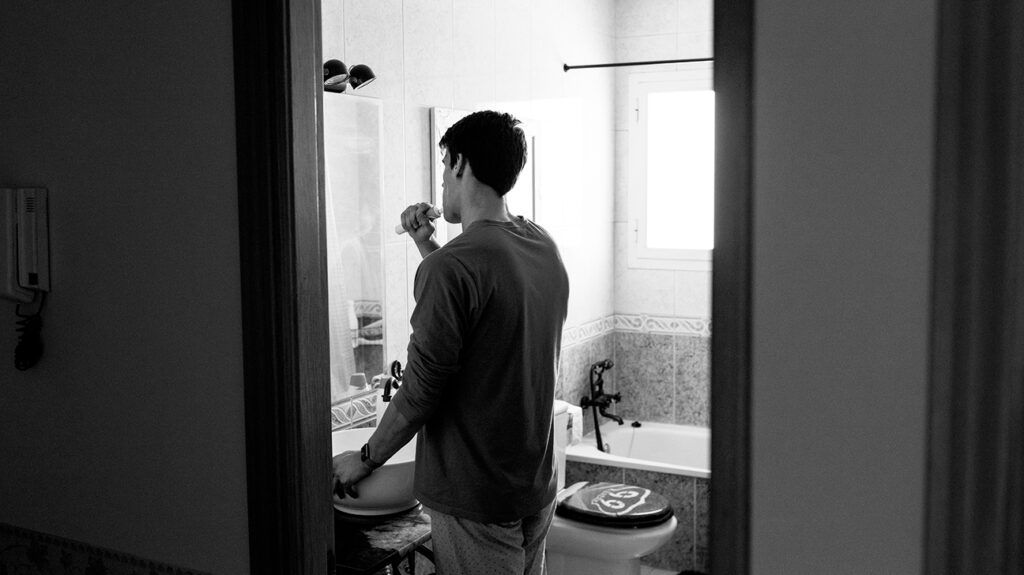Both are distinct conditions that affect the gums. However, gingivitis can sometimes progress to periodontitis, a serious condition that may require antibiotics or surgery.
Both conditions lead to gum inflammation. Untreated gingivitis can affect oral health and cause complications, including periodontitis.
Periodontitis is a more serious condition that involves the periodontium, the soft and bone tissue that keeps teeth in place. It can lead to severe inflammation, infection, and damage to gums and teeth.
This article will review the differences between gingivitis and periodontitis, their symptoms, causes, risk factors, and treatment. We also discuss tips on preventing both conditions and when to see a specialist.

Gingivitis is a mild gum disease. It does not tend to lead to severe issues or complications. In fact, with treatment in the early stages, gingivitis
However, if a person does not get treatment, gingivitis can worsen and progress to periodontitis.
Periodontitis occurs when plaque, and the bacteria it contains, spread to the gumline. The bacteria can trigger an inflammatory response that damages the tissue of the gums and the bone that keeps teeth in position.
As this process damages the gums and they start receding, the teeth appear more exposed, and gum pockets form. Infection can occur in these pockets, causing even more damage to bones and soft tissue.
If the gum pockets get too big, the teeth may loosen, and keeping the gums clear from bacteria becomes more difficult.
Gingivitis does not usually cause pain or any serious symptoms. Some common symptoms that people may experience
- swollen or red gums
- gum bleeding when brushing or flossing
- random bleeding from the gums
- bad breath
- tenderness in gums
Periodontitis is different. It
During the first stages of periodontitis, people may experience symptoms similar to gingivitis, but the more advanced stages can cause additional symptoms, such as:
- bleeding and sore gums
- sensitive teeth
- loose teeth
- discomfort when chewing
- receding gums that pull away from the teeth
- teeth that move away from their natural positions
When the gums recede from a tooth, it creates a pocket space. These pockets can lead to a buildup of bacteria and potentially cause infections.
The buildup of dental plaque
However, bacteria and plaque are not the only factors contributing to periodontal disease. Other potential causes and risk factors
- hormonal changes that can occur during pregnancy, menopause, or puberty
- having certain health conditions, such as diabetes, HIV, or AIDS
- taking certain medications, such as calcium channel blockers, hormonal contraceptives, or anticoagulants
- smoking or using tobacco products
- genetic factors
- having low vitamin C levels
- eating large amounts of refined carbohydrates
The treatment of gingivitis usually focuses on minimizing gum inflammation. People can achieve this by trying the following
- flossing and using antiseptic mouthwash containing chlorhexidine every day
- brushing at least twice a day, especially when waking up and before going to bed
- undergoing professional dental cleaning to remove plaque and tartar from the gumline and teeth
- maintaining overall good oral hygiene
Periodontitis may
During the procedure, the doctor cuts open the inflamed gums
Prevention for gingivitis and periodontitis is the same. To prevent both, people should consistently maintain good oral hygiene. Following an oral hygiene routine can
Some strategies that help a person maintain good oral health
- brushing twice every day, usually after waking up and before going to bed
- flossing daily, which helps to remove bacteria stuck between teeth
- managing diabetes, if applicable
- avoiding smoking and tobacco use
- limiting alcohol and refined carbohydrate consumption
Learn more tips about caring for gums and teeth.
People should schedule regular checkup appointments with a dentist at least once a year.
Dental checkups can help identify potential situations that increase the chance of developing gingivitis and periodontitis. Dentists may advise removing plaque and tartar buildup and provide tips on how to manage good oral health.
A person should also visit the dentist if they develop
- painful gums
- loose teeth
- pain when chewing
- persistent bad breath
- receding gums
- bleeding gums
These could indicate periodontal disease.
If an individual knows they have periodontal disease, attending regular appointments with a dentist is essential.
Gingivitis is a mild gum inflammation.
If this happens, people may need additional treatment, including antibiotics or surgery. In its later stages, periodontitis can lead to severe tooth and gum damage.
Good oral hygiene at home and attending regular dentist checkup visits are key to preventing both gingivitis and periodontitis.


